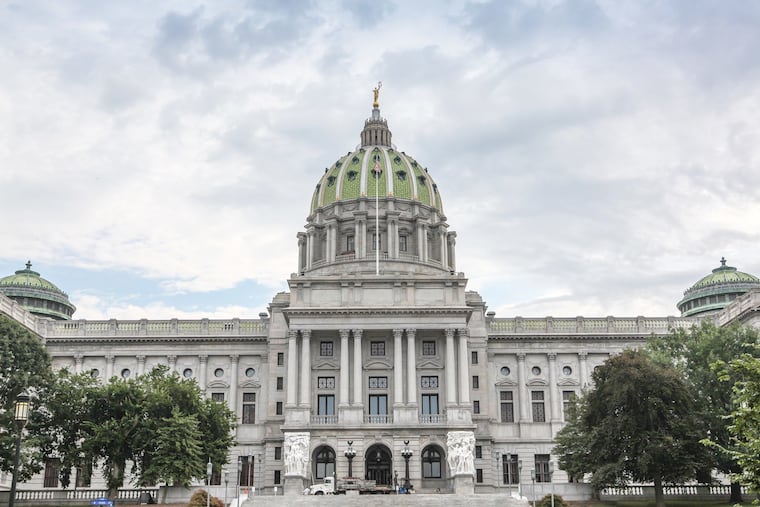New effort to eliminate the Pennsylvania Liquor Control Board via constitutional amendment
Republicans in Harrisburg have wanted to get Pennsylvania out of the alcohol business for generations.

A state representative from Western Pennsylvania has proposed a constitutional amendment that would ban the state from the booze business.
It’s a new approach to a goal sought by generations of Republicans in Harrisburg: ending the state’s monopoly liquor business — exercised through the Pennsylvania Liquor Control Board — which has been in place nearly since the end of Prohibition in the 1930s.
It’s a simple question, State Rep. Natalie Mihalek, sponsor of a resolution that would let voters decide on the future of the state monopoly, said during a hearing Monday: “Should this government be engaged in the sale of alcohol?
“It would seem to me that the government monopoly on liquor is an anti-consumer relic,” she said during a House Liquor Control Committee hearing.
If the state House and Senate passed Mihalek’s proposed amendment — introduced Friday — in two separate sessions, it would go before voters. If voters were to approve it, lawmakers would have 18 months to replace the PLCB with a private system.
Republicans in Harrisburg say they have been resorting more often to constitutional amendments because they are unable to get things past Gov. Tom Wolf’s veto.
“This is the product of an executive branch that won’t work with this legislature,” Rep. Carl Walker Metzgar, a Republican whose district covers parts of Bedford and Somerset Counties, said at the beginning of Monday’s hearing — which a Democrat tried to delay for two weeks.
Much of the ensuing discussion centered on how the state would replace the money raised by its liquor monopoly.
Tim Holden, chairman of the Liquor Control Board, said he was “not going to get into the political fray,” but he detailed the money that flows through the agency.
The system generated $2.91 billion in sales in the year ended June 30, 2021. Of that, more than $764.8 million went into the general fund: $415.8 million in liquor tax, $163.9 million in state sales tax, and $185.1 million in profit.
In addition, the PLCB gave $29.2 million to the Pennsylvania State Police Bureau of Liquor Control and $5.3 million to the state Department of Drug and Alcohol Programs. It returned $9.6 million to Allegheny County and Philadelphia for additional local sales taxes and $1.8 million in license fees to municipalities.
That money does not come out of thin air, however. It comes from state store shoppers, who are also taxpayers, testified Gene Barr, president and chief executive of the Pennsylvania Chamber of Business & Industry.
“It’s almost a right pocket-left pocket issue when you look at it from that perspective,” he said.
Wendell Young IV, president of United Food & Commercial Workers Union Local 1776, which represents state store workers, warned lawmakers that consumers and workers would suffer without the PLCB.
He predicted higher prices, higher taxes, and less selection in stores if the state gets out of the business.
Few of the 6,600 people who work for the PLCB would find work with the businesses that replaced the state’s monopoly because retailers would simply reallocate space and workers in their stores instead of hiring former state store workers to staff new liquor sections.
Letting voters decide on whether the state stays in the alcohol business is a bad idea because voters are not being given the chance to make a valid choice, Young told committee chairman Metzgar.
“You’re not showing them what you’re replacing it with. That’s no choice,” Young said. “It’s a popularity contest. It’s a philosophical question.”